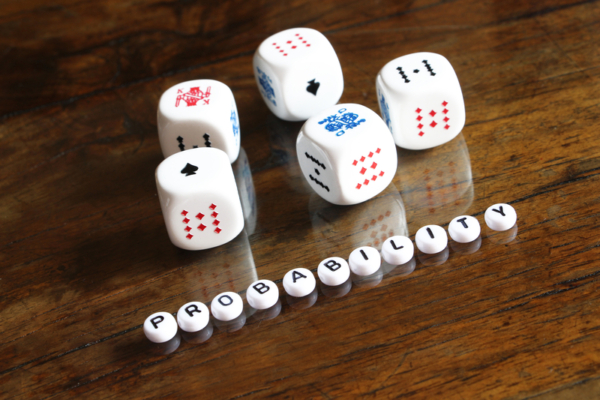Have you ever wondered how poker hand probability affect the game? Math is what separates the professionals from the amateurs. You see, poker is all about math, even before the cards are dealt, to betting, checking, to raising, the flop, and rivers cards; it all has math written all over it. It is the DNA of poker. Today we are going to speak on probability which is just the tip of the iceberg.
Think of probability as the gateway keeper into the math side of poker. If you can’t understand probability, chances are he won’t understand the rest. Still, even knowing how probability affects the game will give you a better understanding of how the games are played. So let’s dive right in.
Odds are it is Probable
What is probability? The definition is the extent to which an event is likely to occur, while measured by the ratio of the favorable cases to the whole number of points possible.
But to put it simply, if you were to flip a quarter heads or tails, the probability is a 50% chance you’ll get leads and 50% chance to get tails, or if you rolled a die, you would have a 1 and 6 chance of hitting any number. Probability is usually expressed in percentages like the quarter example.
It can also be given as odds, like the die example. Now that we are all caught up on probability and what it is, we can move on to probability with your hand.
Probability Poker
First, we start with a deck, a standard 52 card deck, so to break it down, there are four different suits and 13 cards per suit 2-10 jacks, queens, kings, and aces. So you will have a 1 in 4 chance to receive a heart, and your odds will increase; say, if you wanted aces of hearts, the odds increase to 1 in 13.
So, in short, you have a 1 in 13 chance to receive any card. Now let’s say you were hoping for pocket aces now. This is where it gets a little more challenging. So we know there are 52 cards in a deck, and each player receives two cards.
This is a critical number to know, and there are 1326 different Combinations of cards can receive And now, back to figure out the pocket aces so you would take the two cards you are slated to receive and divide into 1326.
You would come out with 0.452, which is your percentage now to divide that number into 100 and simplify; I never said it was easy, but then you are 1 in 220. So your odds of being dealt pocket aces is a whopping 1 in 220 chances. Hey, it happens. A player should receive pocket aces at least once in every 220 hands.
Poker is Math
There is no getting around that; it appears in every aspect of play. It is the DNA of poker. So if you think poker is in your DNA, you better start studying up on arithmetic because this was just a tiny glimpse into math and poker hand probability. Still, it is an essential part.
Try your luck at National League of Poker, where you can win cash with zero risk.
Here’s a token code: APR621







